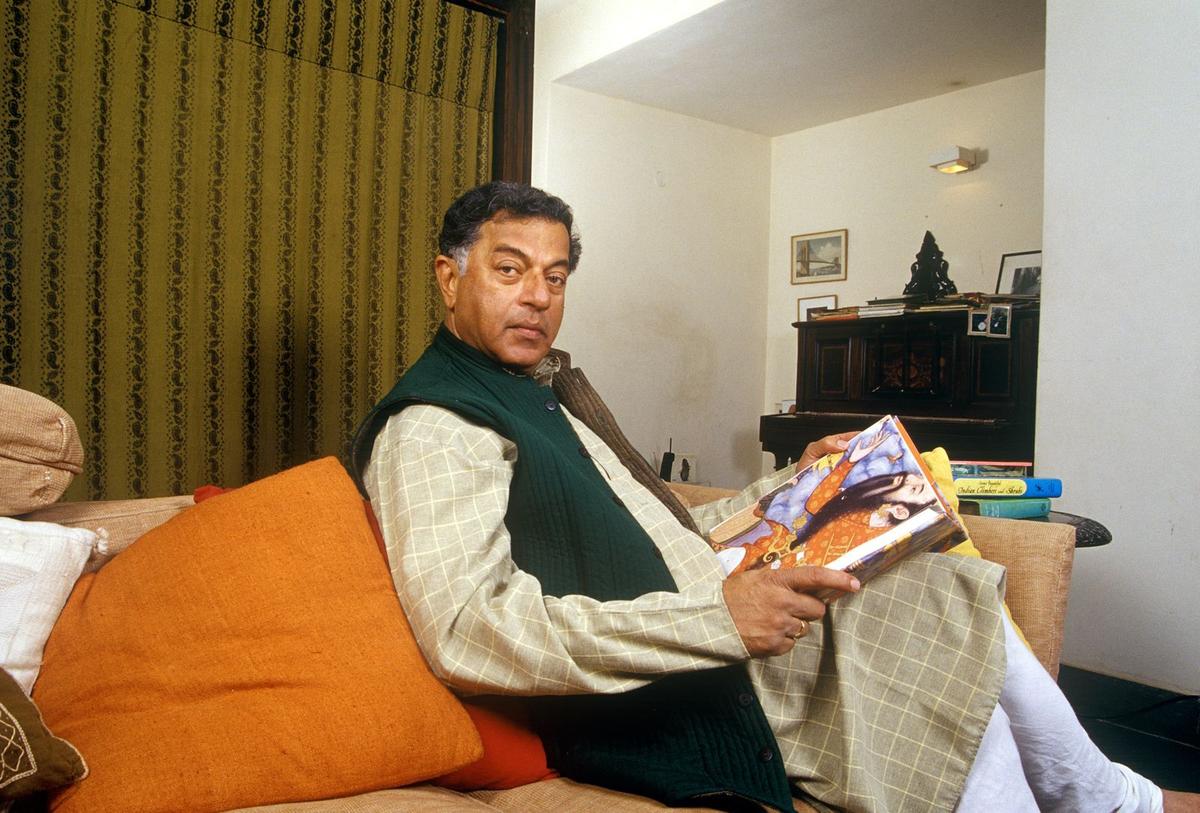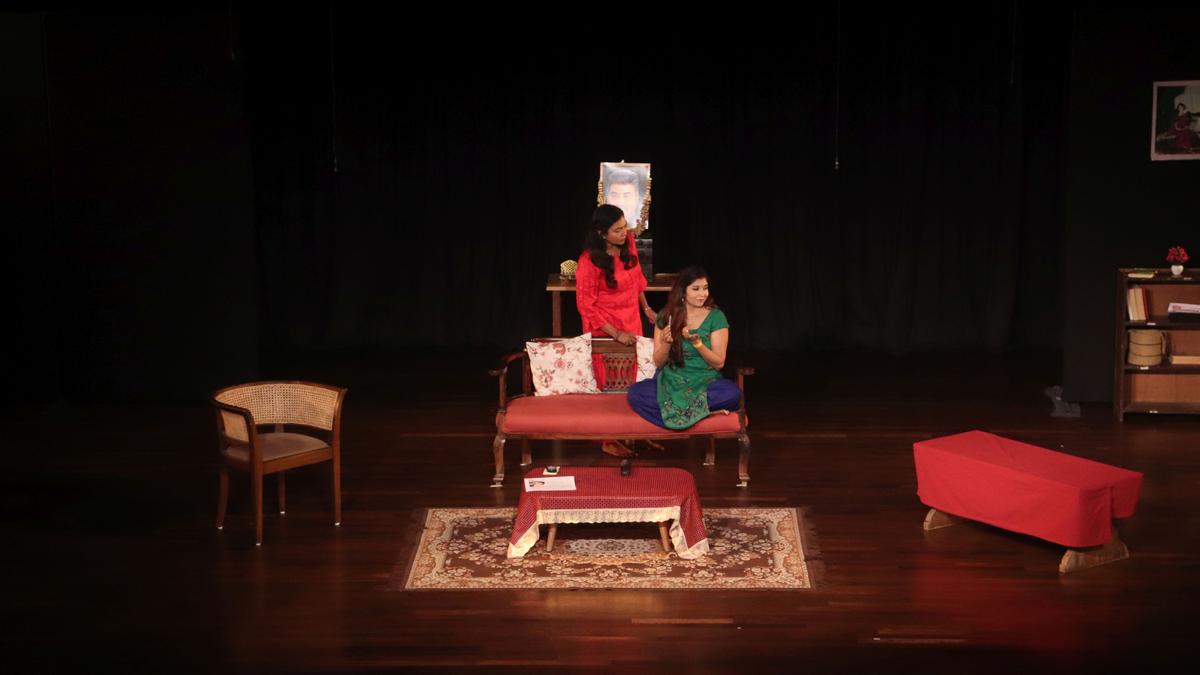A scene from the play
| Photo Credit: Special Arrangement
At the age of 35, playwright, filmmaker and actor, Girish Karnad, found significant success in the world of arts, with his films winning awards and accolades. His journey and life have been documented by the late actor-director himself in his memoir, This Life at Play (originally written by him in Kannada, and later translated into English by him and Srinath Perur).
It is in this memoir that Girish shares the story of his birth. His mother had exclaimed to his father during lunch one day: “And we had thought of not having him.” When Girish demanded to know more, he was told how she had felt that the three children they had would suffice, so they had booked an appointment with a doctor in Pune, but returned home when the doctor didn’t show up and the couple never went back either. Reeling from this unexpected story, Girish dedicates his memoir to Dr. Madhumalathi Gune, whom he held responsible for his (and the memoir’s) existence.

Girish Karnad’s play exposes the national obsession of families with the institution of marriage.
| Photo Credit:
Special Arrangement
The core of the play
In his play, Wedding Album, written many decades later, Girish Karnad touches upon topics such as family secrets, nursing grievances, withholding or suddenly revealing life-altering information. The idiosyncrasies and hidden lives of families; their funny dances, sidestepping their histories; upholding of societal dividers such as caste and religion; their overlooking of serious issues like abuse; their perpetuation of dysfunctional patterns and lack of self-reflection — all forming the core of the play, which was recently performed by the Courtyard Koota community theatre group at Bangalore International Centre (BIC).
The story revolves around Vidula, the youngest daughter of the family, who is to get married. The plan is to get her and the groom to meet and spend all of a week “getting to know each other.” This is to run in parallel with wedding arrangements like purchase of jewellery and saris, planning of guest lists and gifts. A hefty advance has already been made towards the wedding venue. The possible marriage of Vidula and Ashwin, a classic NRI catch, becomes, not just a lens to view other marriages but also a platform to plot and pitch other marriages. Girish’s Wedding Album exposes the national obsession of families with the institution of marriage.
A mother’s untold story
In his autobiography, Girish writes empathetically of his mother’s struggles to gain an education despite an early marriage, motherhood and widowhood. Raising a child at her parents’ place, she doggedly pursued any avenue towards studying and earning a livelihood, much against the social norms of her time. She didn’t just succeed in that pursuit, but dared to design her own second marriage, giving herself another chance at family life. Her new life brought her joy, wealth, more children, more accomplishments (theirs) to celebrate. Yet, Girish writes, she never “stopped ruing that as herself, rather than as my father’s wife or as our mother, she had nothing she could claim as her own achievement.”
This is another thread he draws into the central narrative of Wedding Album in which Vidula, Hema and Rohit’s mother, wife of Dr. Nadkarni, though not unhappy, lives with an undercurrent of sadness, even cautioning her younger daughter not to throw away her talents in bearing children. Girish writes in his memoir that Wedding Album draws from memories of the “year of anguish and frustration” that he, his elder sister and mother went through, as they prepared for his younger sister’s marriage.
Natasha Iype, founder of Courtyard Koota, says this play was chosen by the community theatre group “for its relatable theme and excellent script.” Though “marriage felt a bit dated,” group readings showed how “the issues raised in the play are still relevant.” They liked how “the seemingly light-hearted approach concealed many nuances, almost in every scene and sentence.” She observes that the play “sparked conversations and audience hung out even after the show,remarking how sad but true” the world of the play was. Though written and published in 2009, originally in Kannada as Maduveya Album, the Wedding Album continues to find resonance among theatre-makers and audience even today.
Published – July 23, 2025 03:57 pm IST

